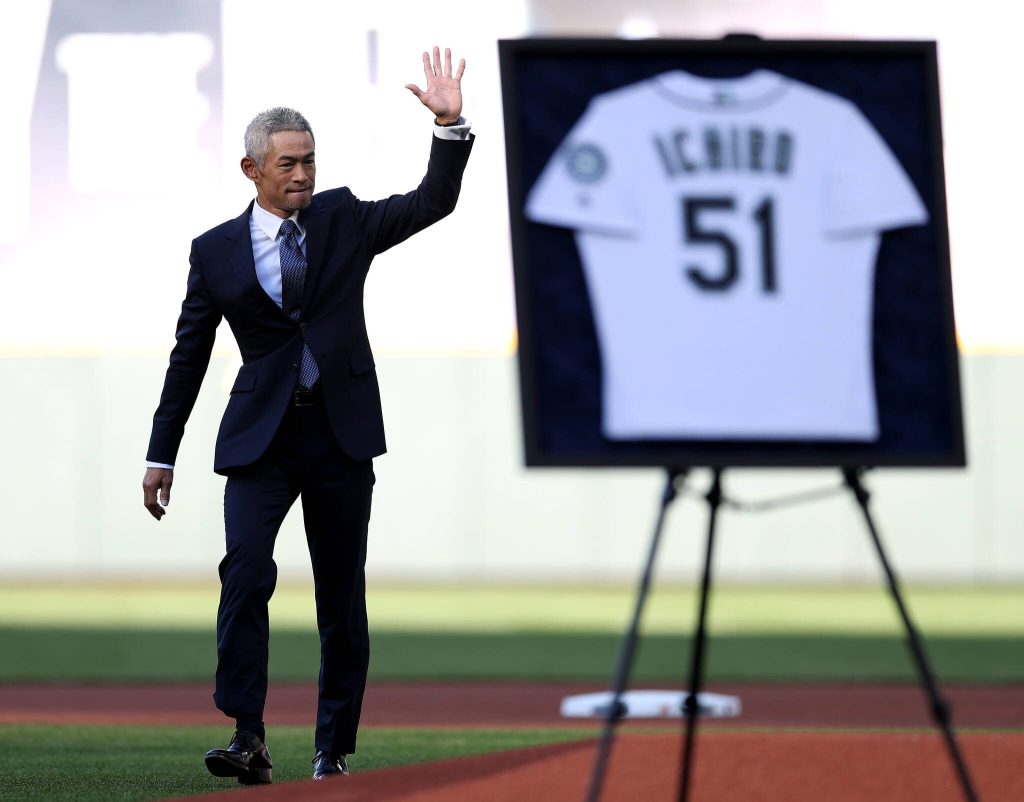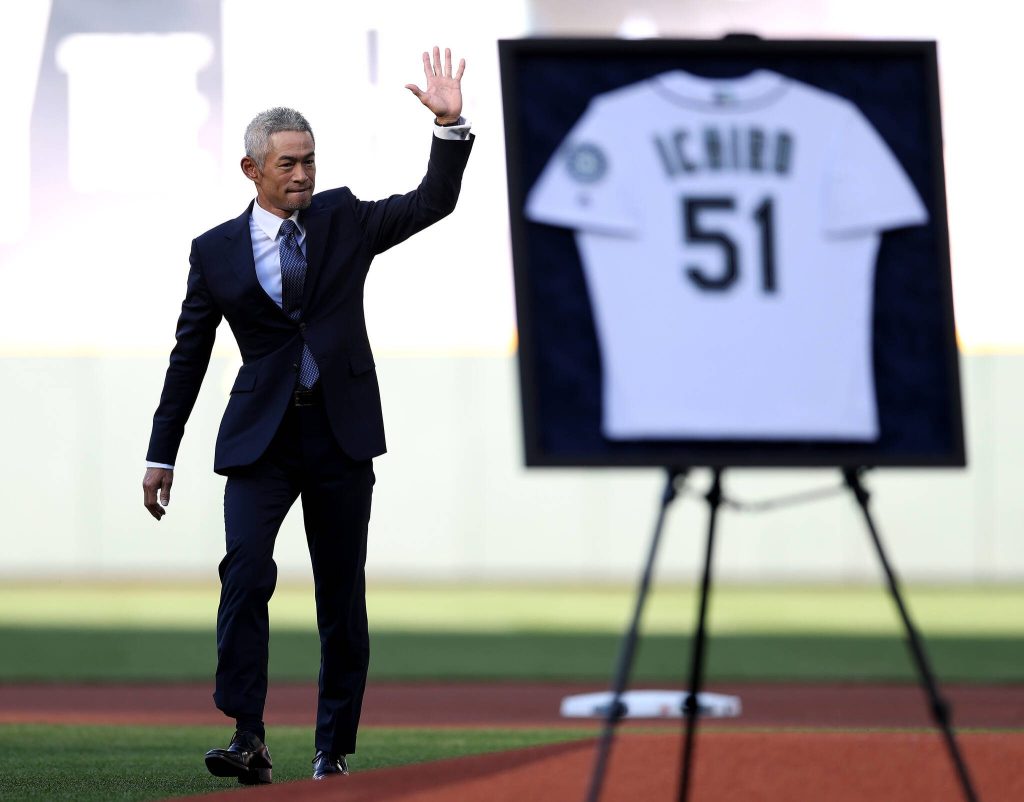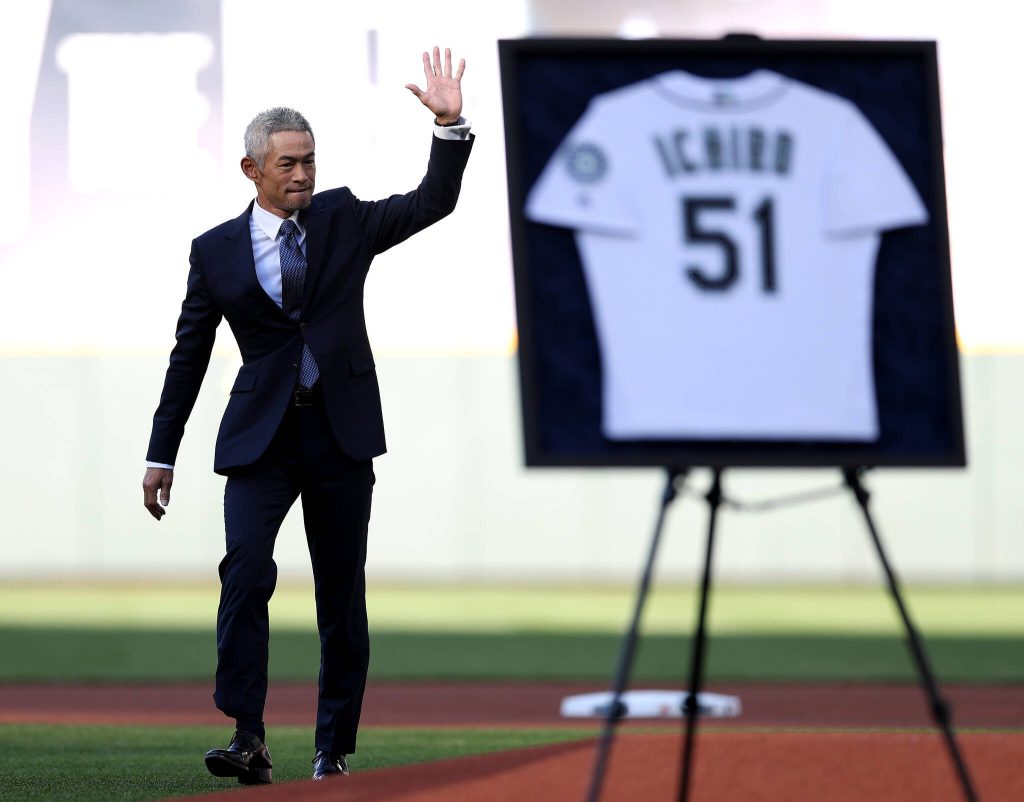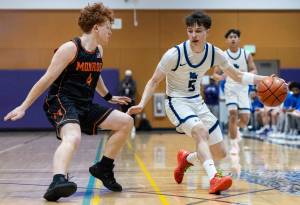Coe: Fans get to know Ichiro as Mariners retire No. 51 jersey
Published 8:53 pm Sunday, August 10, 2025



SEATTLE — It’s been good to get to know Ichiro over the last few weeks.
We watched him for 14 seasons and marveled at the things he could do on a baseball field. He was — is — ours, but we never really knew him.
He’s perhaps the most unique and underappreciated superstar in Seattle sports history.
We heard through the grapevine things about him that local media and fans never saw. His teammates let on that there was a sense of humor that was hidden from non-Japanese speakers outside of the locker room.
We all saw it July 27 during his National Baseball Hall of Fame induction speech, and again Saturday when he spoke English to 45,249 fans at T-Mobile Park as his No. 51 jersey was retired by the Seattle Mariners.
We saw Ichiro perform his best imitation of Mariners broadcaster Rick Rizzs during both speeches, and make jokes about the lone Hall of Fame voter who left Ichiro off a ballot.
Prior to that, we saw flashes of that humor only during a couple of Mariners commercials and an interview with Bob Costas about Kansas City summers.
It’s probably best not to look that one up on a work computer.
We struggled to get to know him, and it took a while to connect with the way he played the game.
The first time I covered a 2001 Mariners game, the skepticism was already building. Ichiro slapped the ball between second and third, and arrived safely at first by a half-step.
“He was lucky to beat that one out,” said a beat reporter for the opponent’s team as he watched Ichiro in person for the first time.
He was “lucky” to beat those out about a thousand times among his 3,089 Major League hits, including 2,542 in a Mariners uniform.
The skepticism about his slap-hitting style was aided by the narrative of “He could hit home runs if he wanted to.” It was a common thought that he’d lose some speed in his early 30s and then suddenly start crushing 40 dingers per season.
He never really slowed down — until he was about 43 years old. At 42, he batted .291 and stole 10 bases in a half-time role with the Miami Marlins. He finished his career with a .311 batting average, 117 home runs and 509 stolen bases, including a team record 438 swipes in a Mariners uniform.
While the language barrier and unique playing style made him tough to figure out at times, there’s one major reason many didn’t connect with Ichiro all the way.
The team didn’t win.
His first year, the Mariners won an MLB record 116 games, but disappointment followed that incredible regular season. The Mariners lost the 2001 American League Championship Series to the New York Yankees, winning only one of five games, and never saw the postseason again during his career.
Ichiro and Felix Hernandez were stars during many of those years, but the rest of the roster was usually pretty tough to watch.
The Mariners remain the only franchise never to play in a World Series, and have packed up the clubhouse after the regular season all but once outside of Lou Piniella’s four appearances in nine full seasons — five playoff berths in 48 seasons.
Despite winning 93 games in both 2002 and 2003, the M’s missed the postseason in Ichiro’s second and third seasons. Seattle was mostly dreadful after that, despite his dynamic play batting leadoff and playing Gold Glove right field.
There were no big moments in October for Ichiro, aside from Oct. 1, 2004 when he recorded his 258th hit of the season to beat George Sisler’s 84-year-old record.
He finished that 2004 season with 262 hits, an MLB record that may stand for more than 84 years this time. No one has touched 230 since that year — except Ichiro, who had 238 in 2007.
The big game moments never came for Ichiro and his teammates when he was in the lineup, but it doesn’t mean he’s done trying to help find some.
“I come to the field every day because I want to help you be prepared for the moment,” he said during his speech at T-Mobile Saturday. “I am confident you can seize the moment.”
He showed another part of his humanity when he teared up as his former teammate and current Mariners manager Dan Wilson spoke about Ichiro, who serves as a special assistant for the team.
Asked about Wilson’s high praise, Ichiro spoke to the media in Japanese on Sunday prior to the Mariners’ seventh-straight win to pull within a half-game of the AL West division-leading Houston Astros, giving further context to his English words over the past two weeks.
“I come to the ballpark every day, all the home games, and obviously practice with the guys,” Ichiro said prior to Sunday’s game through his long-time interpreter, Allen Turner. “But I’m not there in the dugout with them, you know? And so I hope that what Dan has said about me, was something that maybe I could contribute to the team. And obviously, my feelings are there. I want the team to do well, and my passion is there, right there. But for Dan to say that, you know, I was very moved.
“I started this role, where I’m at the ballpark every day with the guys. So I’m there working with them. So my feelings are there. I’m with them always. And so that’s just a natural thing as a person, to have these feelings, to want the guys to do well, to want each and every one of those guys to perform and do well. And so just to be around them every day here, it means a lot, and of course, that’s hopefully what I can do to help them even a little.”
While Turner does a marvelous job, those who don’t speak Japanese can never fully feel the impact of Ichiro’s words. Ichiro spoke mostly through an interpreter to English-speaking media for his entire career, in part because he did not want his words to be misunderstood. He often brings a unique perspective. In a world where one’s words are sometimes quickly turned against them, it’s understandable he’d want that Turner buffer.
And perspective is important to Ichiro, sometimes quite literally. He spoke about his physical perspective of fans in the Hall of Fame in Cooperstown versus Saturday in Seattle.
“Cooperstown, you know, there was a lot of fans, but it’s kind of from a higher position, looking down,” he said Sunday, through Turner. “(Saturday) we were on the field looking up, and it was just a full stand of people, and that was great.”
He revealed on Sunday that he found out the same way fans did at Saturday’s game about an Ichiro statue that will be unveiled at T-Mobile Park in 2026. Team chairman John Stanton, who was booed fairly rigorously when he was introduced Saturday, announced the statue plans during his part of Ichiros’s number retirement ceremony.
Asked about the statue, Ichiro once again showed that sense of humor we’ve seen more in the past two weeks than perhaps the previous 24 years. He laughed as he spoke in Japanese about the statue, and the English speakers in the room chuckled along with him moments later when Turner translated his words.
“So that was definitely a surprise, being able to (Saturday), see my number up there, and then now having a statue.
“I guess I could die peacefully.”







